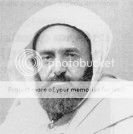- 21 Apr 2015 00:38
#14549258
The problem with such an argument statement Redcarpet, is that in an instant, you stripped the people who live in a given area, of that circumstance and instantly framed them as foreign, even though they live there. This is an argument that deprives people, especially indigenous people who's land rights are often not considered by colonialists. To native peoples, or any population that lives somewhere, they consider the geographic region to belong to themselves because they live there. They don't necessarily own it in accordance with the concept of ownership in Western Society, but they do consider that it belongs to them as the host population. We see this conflict of intrest between populations ad "state actors" in situations such as pre- aboriginal land rights Australia, the Amazon Indians and their rights to their ancestral lands, American Indians, and the Palestinians whom didn't own Palestine, but certainly lived there.
Both sides defied partition in the pursuit of their own selfish self intrest. The Palestinians defied it because they already lived there and didn't want to move around to appease what they saw as foreign interests and foreign Zionist settlers. While the Zionists settled where ever and whatever they could acquire (a policy that continues to this day via the Israeli Settler Movement).

"Netanyahu is like a man who, while negotiating the division of a pizza, continues to eat it." - Avi Shlaim, British-Israeli historian.
redcarpet wrote:Abu Rashid wrote: What's wrong with a two state solution?
What's right with it? Would you accept me coming into your land, taking 75% of it, and graciously offering you a two state solution?
Since Mandatory Palestine wasn't a nation-state it wasn't 'their' land. It was international property.
The problem with such an argument statement Redcarpet, is that in an instant, you stripped the people who live in a given area, of that circumstance and instantly framed them as foreign, even though they live there. This is an argument that deprives people, especially indigenous people who's land rights are often not considered by colonialists. To native peoples, or any population that lives somewhere, they consider the geographic region to belong to themselves because they live there. They don't necessarily own it in accordance with the concept of ownership in Western Society, but they do consider that it belongs to them as the host population. We see this conflict of intrest between populations ad "state actors" in situations such as pre- aboriginal land rights Australia, the Amazon Indians and their rights to their ancestral lands, American Indians, and the Palestinians whom didn't own Palestine, but certainly lived there.
redcarpet wrote:Trying to defy the 1947 UN Partition Plan was both squatting and conspiracy with other criminals, trying to take by force more than was allocated to them.
Not that the hard Right Zionists like Irgun & so on weren't any different.
Both sides defied partition in the pursuit of their own selfish self intrest. The Palestinians defied it because they already lived there and didn't want to move around to appease what they saw as foreign interests and foreign Zionist settlers. While the Zionists settled where ever and whatever they could acquire (a policy that continues to this day via the Israeli Settler Movement).

"Netanyahu is like a man who, while negotiating the division of a pizza, continues to eat it." - Avi Shlaim, British-Israeli historian.


















 - By Potemkin
- By Potemkin - By wat0n
- By wat0n